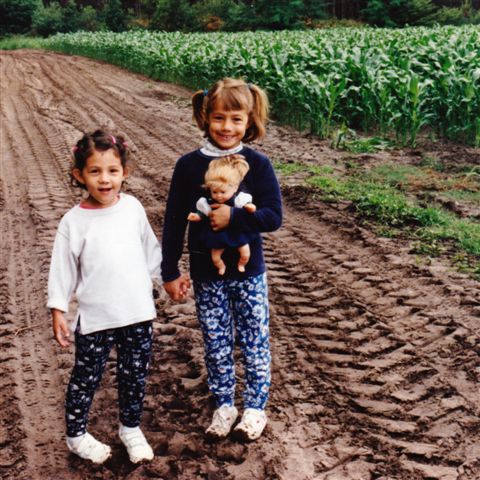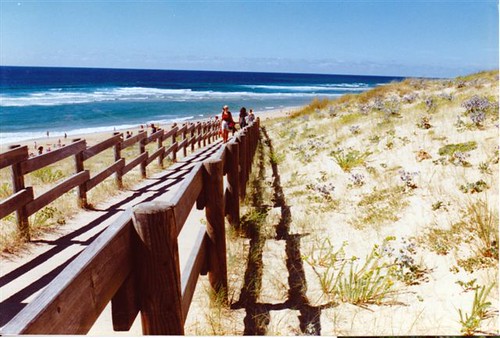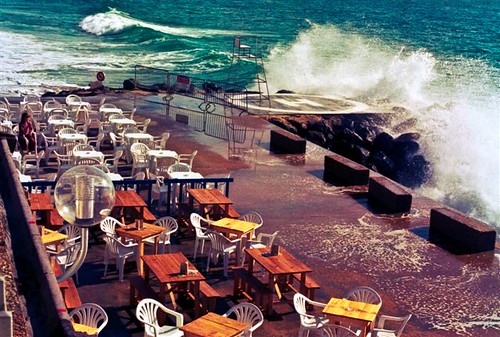Vive les vacances!
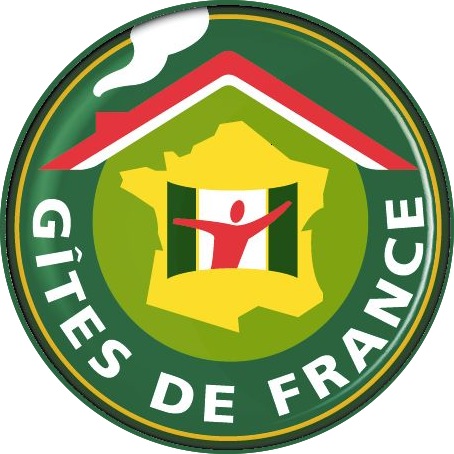 Les vacances are one of the most important events in French life.
Les vacances are one of the most important events in French life.
It is a serious business, a lot of thought and preparation goes into choosing the dates and location; summer school holidays are two months long, so holiday goers are split into two camps, juilletistes and aoûtiens and they rarely change.
We loved les gîtes de France, a network of private accommodation holiday rentals, and had spent all our previous holidays in different areas of France. That year, we decided we would go to the seaside.
The Mediterranean coast was ruled out because too crowded in summer. Brittany was also ruled out because it would take us more than a day of travel, which wasn’t appealing with our two daughters, Amélie and Anaïs (5 and 2 year old), so the remaining option was the Southern Atlantic coast.
My aunt Véro lived in Biarritz, in Basque country, so we found a gîte de France in the Landes region, where François Mitterrand loved to stay, so we could go and visit her.
We found one that looked nice, it had 2 bedrooms with facilities for little children and was located in a farm only a short drive from the beach, what more can you ask for? We had booked to arrive in the last week of June to avoid les bouchons (french for traffic jam, also means ‘cork’). We were all excited to spend our first vacation at the seaside.
The farm was in the middle of corn fields and our accommodation was part of the farm house, adjoining the owner’s living quarters. The owner, Madame Puysol, greeted us very warmly and assured us that her dog was harmless. Even if I could take her word for it, I found it impossible to convince Amélie and Anaïs that a growling and barking German shepherd meant them no harm.
Every time they tried to go outside to play in the sand pit, the dog would terrify them by barking as loudly as he could and they would run back inside, crying. Explaining to them that the dog was tied with a chain and there was a fence did nothing to allay their fears.
After a long drive and a canine induced adrenaline rush, we were looking forward to a good night’s sleep. But, our bedroom was adjacent to the owner’s living room where an old grandfather clock went ticked loudly through the night. The rhythm of the clock might have rocked us to sleep, but the half hourly chimes ensured our sleep didn’t last more than thirty minutes.
Then at 3 am, a loud, whirring noise woke everyone up, it sounded like we were in a war zone. While Isabella was preparing the children’s bags so we could either evacuate or take refuge in the cellar, I went outside and saw five helicopters flying above, their spotlights shining on the corn fields. We locked the doors, fearing that it was the police looking for an escaped criminal. After half an hour, the helicopters flew off and we were so tired, we eventually went to sleep.
When we mentioned this to Madame Puysol the next morning, she shrugged and said, “Ce n’est rien, there is an army base nearby and they do their night flight training, you get used to it”. This time, I found it even harder to take her word for it.
Then after lunch, half a dozen cars drove in, with men in white coats who started examining the corn fields. “First the army, now what ?” I asked Madame Puysol’s son, Jean-François. He explained that they had European Union subsidies to allow their fields to be used for research into GM crops.
I really thought that the description in the gîtes de France guide should have included a few warnings about helicopters and scientists. As we were going to find out later that day, there was something else that was misleading in the description.
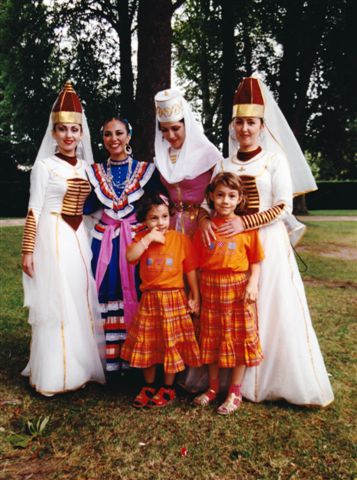
After we got home and showered, we found there were enough dirty clothes to fill the washing machine that was mentioned in the description. Madame Puysol showed us la machine à laver, which turned out to be a contraption from the 1960s that looked like a gigantic salad spinner.
The weather changed so we visited the lovely town of Dax, saw my aunt and cousins in Biarritz where we visited the museum of the sea.

I don’t know whether there are such things as coincidences, but I do know that Véro was grateful, as I had been grateful when she had welcomed me into her home when I first came back to France.
I don’t know whether I had a premonition that we would need a holiday to recover from our holiday, but I had kept one week of my annual leave allowance to go to the Festival des cultures du monde in Gannat (centre of France), where we had a wonderful time and enjoyed music, dances, songs and traditions from all over the world.
All images © Judy Macmahon

